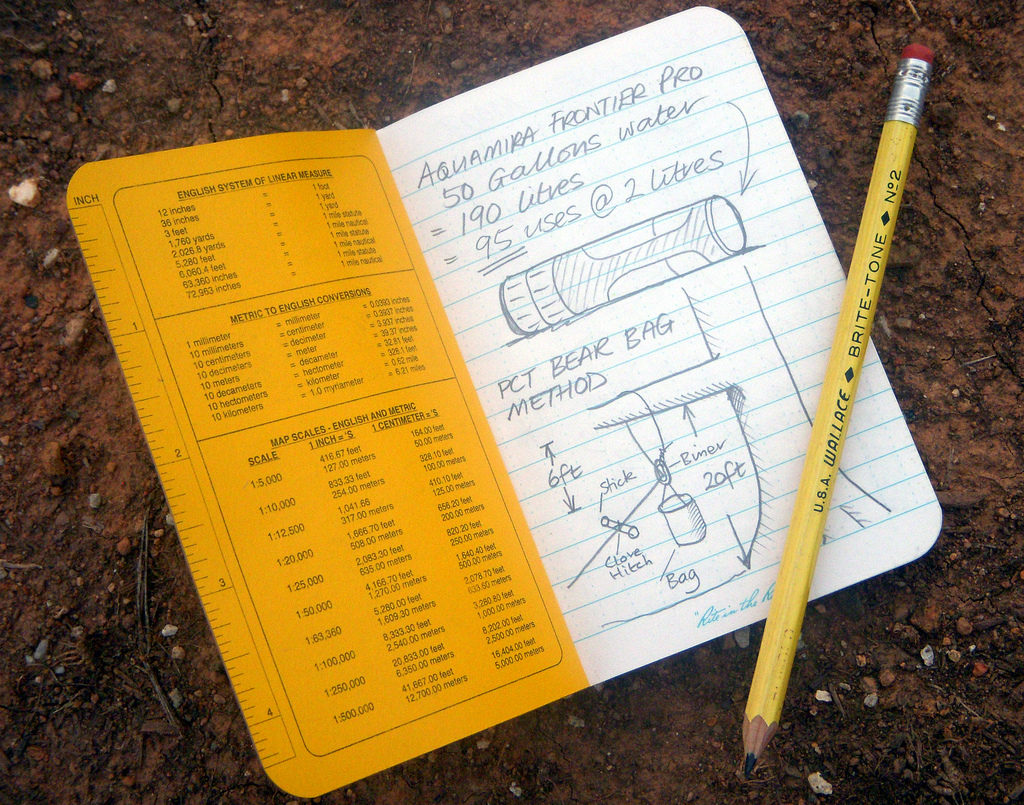- An Introduction to Lightweight Backpacking
- Lightweight Backpacking Step 1: Weigh Everything!
- Lightweight Backpacking Step 2: The Big Three
- Lightweight Backpacking Step 3: Multi-Function Gear
This is the fourth post in my series on lightweight backpacking aimed at helping you reduce your overall pack weight without sacrificing any of the comfort or necessities.
In my first post I introduced you to the concept of lightweight backpacking, the benefits, how to get started, and taking less stuff. The second post focused on weighing your gear, using gear lists, and knowing how much weight you are carrying. The third post focused on reducing the weight of your “Big Three” – your tent, backpack, and sleeping bag.
For this fourth installment I wanted to share another ample method for further reducing your pack weight by selecting pieces of gear that can be used for multiple purposes.
The concept is easy, if you can carry less “stuff”, your overall pack weight will be reduced and you might even reach a point at which you will be able to switch to a smaller volume backpack.
Tip #1 – Sleeping pad as frameless pack support
Tip #2 – Trekking poles used as shelter/tent poles
Here are some examples that I’ve personally used or that I’ve picked up from others over the years.
- I carry a lightweight, frameless backpack made by Gossamer Gear. I use my foam sleeping pad as a back support to provide some much needed cushioning and to add rigidity to an otherwise flimsy backpack. I’m carrying my sleeping pad anyway, so why not use it for more than one purpose and dump the frame. The sleeping pad also make a great sitting pad and pillow for catching a few minutes of shut eye
- If you have decided to go with a tarp as your shelter you can easily your trekking poles as the upright supports at either end. In some cases you can even replace the tent poles supplied my some manufacturers with more traditional tents and shave almost a pound of your pack weight right there
- The classic bandana. A true multitasking piece of gear. Let’s see: Scarf, hat, face mask, headband, handkerchief, sun block for neck, tourniquet, sling, pre-water filter, coffee filter, napkin, dish rag, pot holder, towel, signaling – the list goes on
- You can use your cooking pot as your plate, bowl and mug. There’s really no need to bring a whole set of cook wear for eating and drinking when a simple pot or titanium mug will do the work of all three
- You can use some ponchos as tarp shelters. GoLite makes a very affordable and durable Poncho Tarp that provides full body rain coverage with a single person tarp that weighs a mere 7 oz! You can combine this with #2 and use your trekking poles to hold up your tarp
- The Spork! Need I say more? Maybe invest in a titanium one or the slightly cheaper Light My Fire (LMF) BPA free plastic ones
- If you like to carry one of those mylar emergency blankets why not use it as your tent footprint or even as a signaling device in an emergency
- Duct tape is another amazing multi-tasker. Use it for all types of ad-hoc gear repairs, bandage wrap, or moleskin substitute for blisters (works great BTW)
- Use one of your gear stuff sacks as a make-shift pillow by filling it with your clothes at night and tucking it inside your sleeping bag. An empty hydration bladder can be used for a pillow too
- Sleeping with a down jacket or vest on during milder weather may let you reduce the weight of your sleeping bag. You’ll have to experiment with this of course, but if you can stay warm and learn to properly regulate your body heat this can save a few more ounces
Many of these will sound a lot like simple common sense and they are, but learning to make do with less gear and finding creative ways to make the gear that you are carrying do more for you is a skill. Remember, it’s not about sacrificing weight for the sake of it or reducing the effectiveness of your gear – it’s about making smart gear choices that allow you to pack light and go further.
What are some of your best multi-tasking pieces of gear and how do you make them serve double-duty? Share your own tips via the comments below.
Editor-in-Chief’s Note: Brian is an avid lightweight backpacker and author of the popular Brian’s Backpacking Blog. Originally from Southampton, England, Brian has lived in the US for over 15 years, finally settling in North Carolina. His love of the outdoors started at a very early age, almost as far back as he can remember. Now he spends as much time backpacking as his work schedule and family life will allow. Be sure to check out his blog for other great backpacking tips & tricks and gear reviews.
